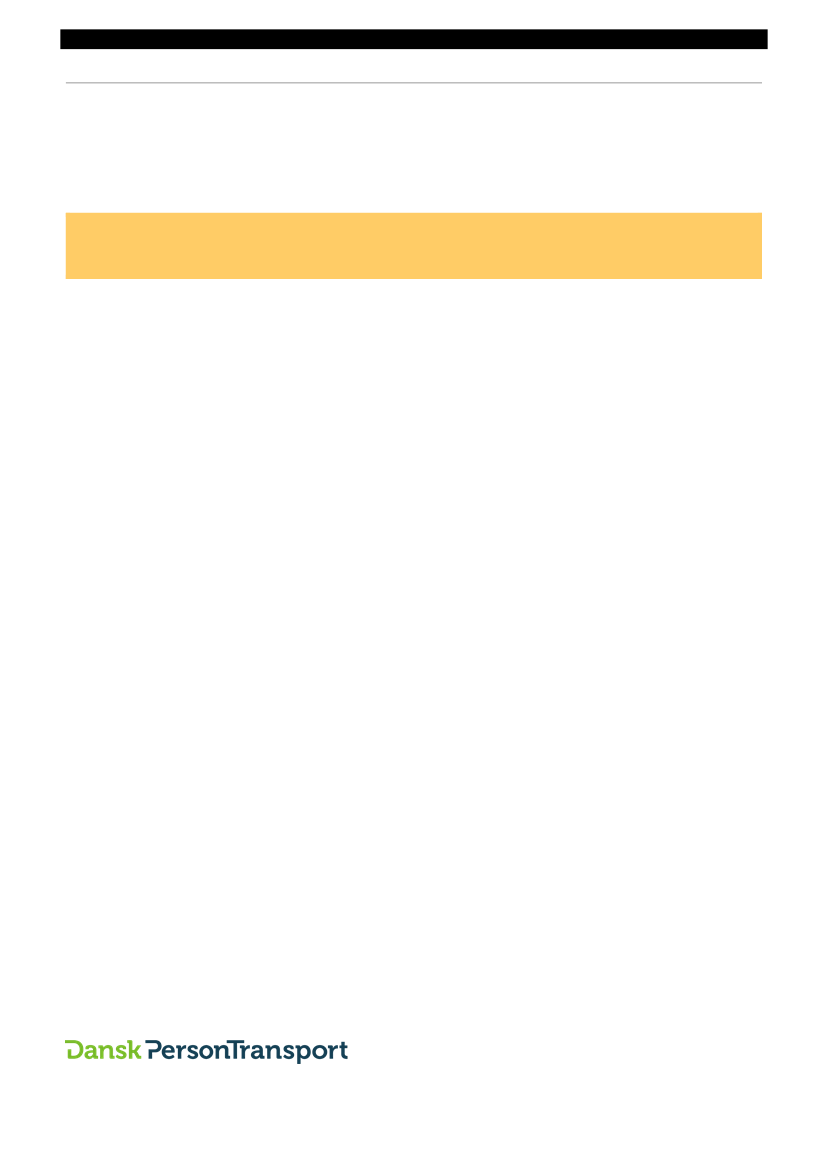
-- AKT 409450 -- BILAG 1 -- [ Opdatering Kommissionens vurdering af Transportministeriets
- endeligt
til ændring af busloven
L 107
forslag
svar på spørgsmål 16
Offentligt
Transportudvalget 2024-25
Til:
Cc:
Fra:
Titel:
Sendt:
Bilag:
Kathrine Aagaard Lise ([email protected]), Frederik Find Leisner ([email protected])
Alexander Höilund ([email protected]), Michael Nielsen ([email protected])
Jens Hvid Bang ([email protected])
Opdatering: Kommissionens vurdering af Transportministeriets forslag til ændring af busloven
29-10-2024 09:25
RE: Interpretation of 1071/2009.eml;
[EKSTERN E-MAIL]
Denne e-mail er sendt fra en ekstern afsender.
Vær opmærksom på, at den kan indeholde links og vedhæftede dokumenter, som ikke er sikre,
medmindre du stoler på afsenderen.
Kære begge
Vi har kontaktet Kommissionen for at få afklaret, hvordan EU-forordningerne skal tolkes i forhold til det
forslag, vi har afgivet høringssvar til i sommers om at ændre buslovens definition af erhvervsmæssig
buskørsel.
Vi har vedlagt vores korrespondance med Kommissionen som bilag, så I kan se detaljerne i vores dialog.
Kommissionens svar
I sit svar skriver Kommissionen, at man ikke kan ændre definitionen på den måde, som lovforslaget
foreslår, og at de tre kriterier ikke kan gøres kumulative.
Faktisk forholder det sig lige omvendt, og ifølge Kommissionens fortolkning af EU-forordningerne skal
følgende tre kriterier opfyldes kumulativt for at en befordring kan defineres som ikke-erhvervsmæssig (og
dermed undtages for tilladelseskravet):
1. Ingen direkte eller indirekte vederlag for befordringen.
2. Befordringen må ikke generere direkte eller indirekte indkomst for føreren af køretøjet eller for andre.
3. Befordringen må ikke være forbundet med nogen professionel aktivitet.
Altså, enhver form for buskørsel, der kræver vederlag, genererer indkomst eller er forbundet med en
professionel aktivitet, kræver en tilladelse.
Det er vigtigt at understrege, at Kommissionen åbner op for undtagelser, men der er tale om meget snævre
undtagelser, som skal være underlagt strenge betingelser, hvilket ikke er opfyldt i lovforslaget, hvor at den
nye definition skaber meget brede undtagelser.
Vi mener derfor fortsat, at den bedste løsning vil være at udvide de eksisterende undtagelser, så f.eks.
pårørende på plejehjem kan køre med i plejehjemsbussen – som ministeren ønsker.
Vi håber selvfølgelig, at I vil tage ovenstående i betragtning i jeres arbejde med lovforslaget, og I må
endelig sige til, hvis I har brug for mere materiale eller en uddybning. Vi står naturligvis til rådighed for
yderligere information eller en drøftelse af sagen.
De bedste hilsner
Jens Hvid Bang
Kommunikations- og sektorchef
Dansk PersonTransport
Nørre Farimagsgade 11, 3.tv
DK-1364 København K
Tel: +45 7022 7099
Mob: +45 5135 5271